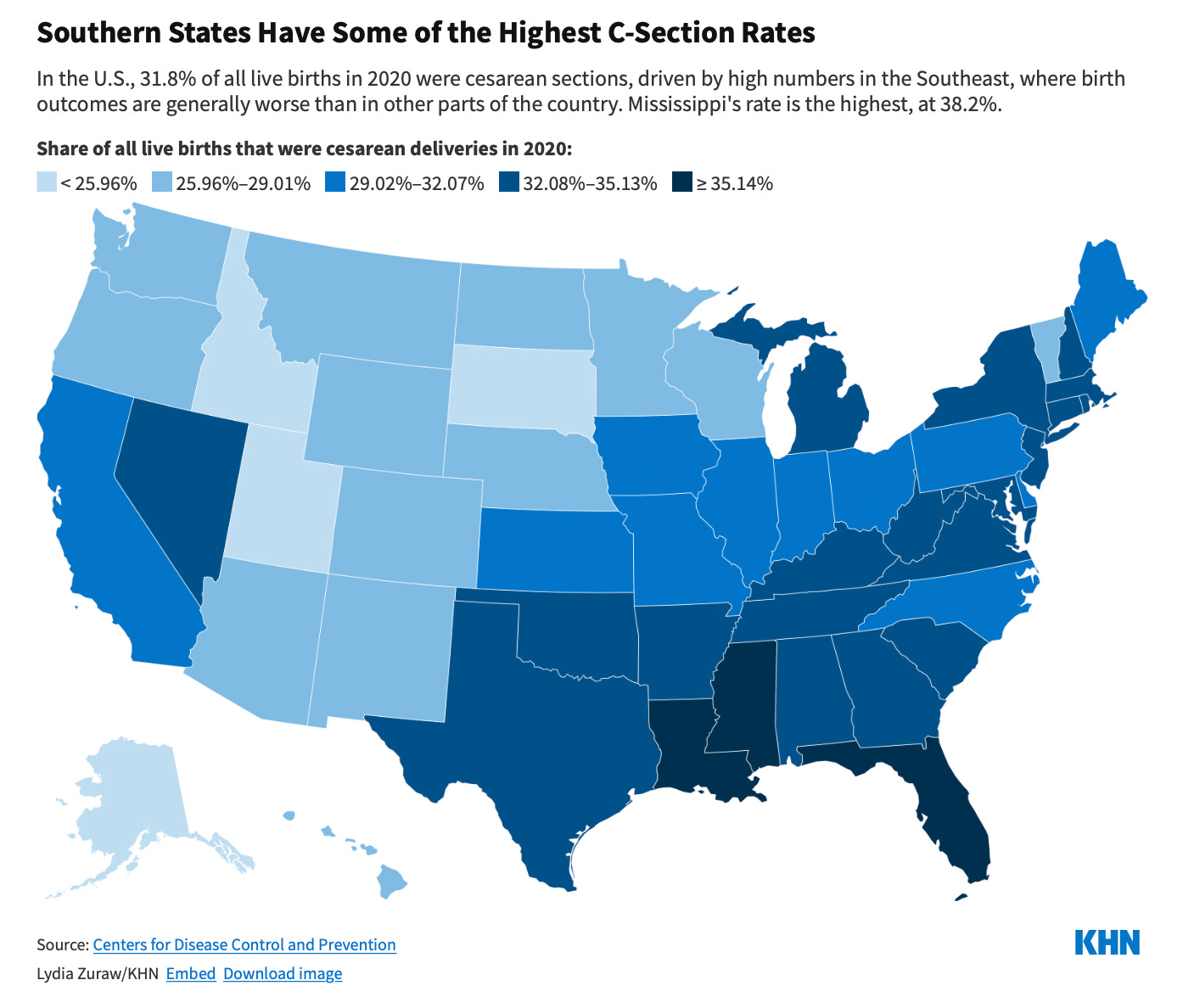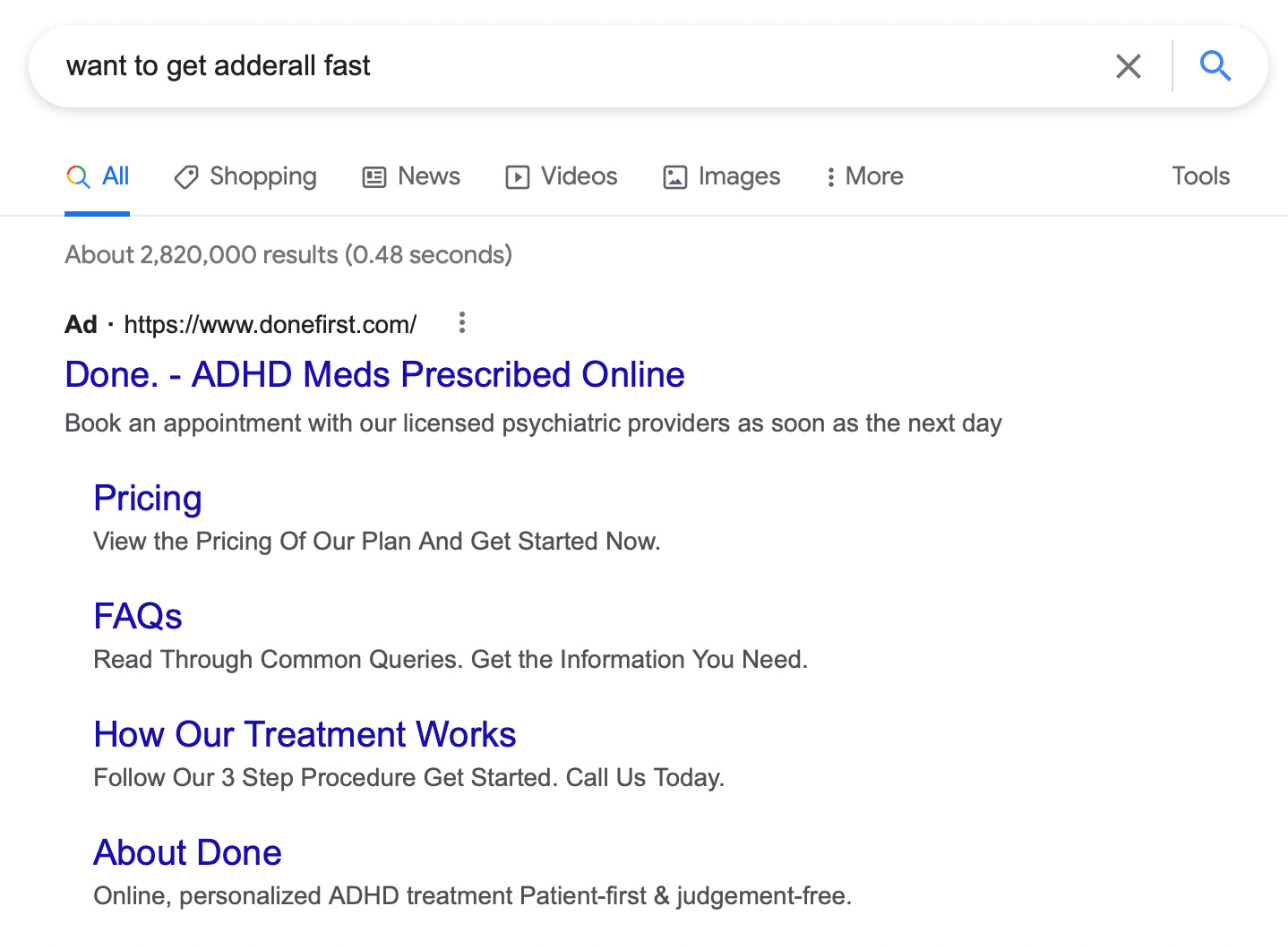Overtreatment in American health care is a problemAn entrepreneurial, market-oriented system has some downsides.One of my tweets last week was, unlike most of my tweets, generally popular and well received by progressives. It made the point that one of the structural features of the American health care system is that it's a basic consumer business, which means giving people medicine that they don't really need can be very lucrative. Apparel companies want to sell you lots of clothing; American doctors and pharmaceutical companies want to sell you lots of treatment.  Matthew Yglesias @mattyglesias Matthew Yglesias @mattyglesiasApril 15th 2022 29 Retweets728 LikesTo the extent that I got pushback from the left, it was from people questioning whether the innovation is real (also here and here) or saying that innovation is all publicly funded anyway. I don't think that's correct. America's lack of price controls means that companies have a strong incentive to deliver new treatments here first. And the fat margins they can achieve in the U.S. market clearly drive more investment in treatments than in a more typical system. Reformers often say we could compensate with other pro-innovation policy ideas, and I totally buy that — we could. But if we just cut out the money, there really would be less innovation. And America's biomedical innovation is genuinely impressive. One of the mRNA vaccines against Covid-19 was developed by an American company and the other was a joint U.S.-German effort. Paxlovid, a highly effective and underutilized Covid-19 treatment, also comes from an American company. If a rich person in a poor country decides to fly somewhere to get some very expensive health care, the destination is typically the U.S. Our health care system has a lot of failings in terms of access for the poor, annoying bureaucracy, and creating financial insecurity for people with chronic ailments. It's also pretty obvious that health care is not actually the primary factor in population-level health, and that Americans suffer from unusually high rates of obesity, lethal violence, and car wrecks. That innovation is valuable, and any reforms should preserve that value. This is one reason I'm very interested in finding ways to make it cheaper and faster to do clinical research. But the overtreatment issue is real. And as economist Dean Baker says, that extends to treatments that don't work at all or are even harmful. Overprescription of opioids has caused a huge problemAs outlined in "Empire of Pain," America's devastatingly difficult opioid epidemic stems from profit-seeking pharmaceutical companies talking people into the idea that opioids are a useful treatment for chronic pain.  Dean Baker @DeanBaker13 Dean Baker @DeanBaker13April 15th 2022 1 Retweet69 LikesChronic pain is a very real problem. You can understand why people were strongly motivated to believe that a great new treatment option was available; it just wasn't true. But in America, there was a lot of money to be made off of accepting the pharmaceutical companies' claims. This was not the case in Europe, and that led to a significant divergence in prescription practices. And while it's easy to lay all of the blame on the Sacklers and the pharmaceutical industry, the doctors who do the prescribing deserve a share as well. In America's marketized, entrepreneurial health care system, a medical doctor is often also a small businessman whose job is to gin up business and drive sales. If a new product hits the market and 90 percent of the profession is cautious and responsible about its use, that's a chance for the other 10 percent to gain market share. The market for quacksOne of the most striking things about health care is that the profession of doctor existed long before there were any scientifically valid medical treatments. When George Washington got sick, he was treated by a panel of doctors who bled him to death. People didn't go see doctors as much back then as they do now, but there were plenty around — it was a distinguished and high-status field, even though practitioners had no idea what they were doing. Modern medicine is obviously a lot better than that, thankfully. But the same underlying dynamic still exists — there's plenty of money to be made selling supplements or "alternative" medicines that plainly don't work. When people are suffering, they will pay money for treatments whether or not there is solid evidence that the treatments are good for them. We also see a lot of this in the unregulated supplement market. A 2017 Consumer Reporters article says "Liver Damager from Supplements is on the Rise," echoing problems that I've seen reported on going back to 2012 and which have been the subject of continuing work in subsequent years. In 2019, Robert Fontana and Ammar Hassan, two liver doctors at the University of Michigan, reported on health risks associated with supplements:
The dangers associated with overconsumption of steroids are pretty well known, but the authors note that overconsumption of green tea extracts also leads to liver damage. And while actual medicines are more tightly regulated, the FDA doesn't step in to prevent aggressive sellers with asymmetrical information from selling people treatments that may not be useful. Medical practice often isn't what it should beCaesarian sections save lives and have for a long time. A C-section is also a major surgical procedure that is difficult to recover from, especially because the patient also typically has to care for a newborn baby. So ideally, doctors would perform this surgery only when necessary, not just willy-nilly. Yet as Lauren Sausser writes for Kaiser Health News, the extreme regional variation in C-section rates prompts the suspicion that doctors in the high-rate areas are reaching for this option too aggressively. Sausser also notes some suspicious temporal patterns:
And as Gee explains, part of the issue is payments. A lot of states have their Medicaid programs structured so that from a doctor's point of view, a C-section is not only faster but more lucrative. You don't need to assume any cartoonish malfeasance on the part of providers to see how the objective structure of the incentives could bias their decision-making. At any rate, I'm not really saying anything new here. Everyone who writes and thinks about health care has been saying for years that America's system of rationing health care based on the ability to pay leads to overtreatment of some even while access is denied to others. Some recommended reading if you're interested:
You can also find more academic treatments of the issue like "Overtreatment in the United States" with a team of authors in PLoS One from 2017. The BMJ has a "too much medicine" initiative. Indeed, the hypothesis that American medical professionals' income is inflated by billing for unnecessary care isn't even controversial among medical professionals. A 2017 Johns Hopkins survey of 2,000 physicians found the controversy is why (not whether) doctors are billing people for so much unnecessary care — survey responses indicated that "physicians believe overtreatment is common and mostly perpetuated by fear of malpractice, as well as patient demand and some profit motives." Obviously doctors like the malpractice theory because it is more flattering to them than the profit motive. But as Aaron Carroll details in this JAMA Forum, the malpractice concern is a minor factor at best. Malpractice laws vary from place to place, for example, but doctors don't tend to change their clinical practice when they move. Doctors are selling products to clients. As with anything else, your best case scenario is to have a product that's genuinely useful. But on the margin, your incentives are to sell aggressively — a pattern you see in any industry. A plot twistSo this is all pretty boring, conventional wisdom stuff. The problem of overtreatment has been widely discussed in the United States for years, and while there's plenty of disagreement and controversy about it, every significant institution I'm familiar with sees it as (1) a real phenomenon in general and (2) a plausible hypothesis for explaining specific trends. For example, if you say that ADHD is overdiagnosed or anti-depressants are overprescribed, people may argue with you about whether your claim is accurate, but the question itself is seen as a reasonable concern. And in particular, if I were to say not that ADHD is overdiagnosed in general, but that there are specific doctors who are known for handing out Adderall like candy, then I think it becomes totally uncontroversial (read my mentions here to see how little controversy this stirred up). Googling "want to get Adderall fast," you can even see people buying ads against that search term touting their "patient-first & judgement-free" approach to prescription stimulants. Where this kind of boring take is going to rocket to nuclear strength heat is that I was thinking about these long-running overtreatment issues when I read an article about the Center of Expertise on Gender Dysphoria in Amsterdam. The clinic launched in the 1970s at a time when gender dysphoria treatment was rare and stigmatized. In the late-1980s, they first treated a 12-year-old and also developed the world's first protocols for treating trans teens. But over time, what was once seen as the most forward-looking and supportive clinic for gender-affirming health care has come to be seen as a hyper-cautious dinosaur compared to contemporary American gender clinics.
I think that if you tune out the culture war context in which this disagreement is situated, you have a specific instantiation of a general phenomenon here — the more entrepreneurial, market-oriented American health care system is more eager to make the sale — and there is a reasonable question as to whether an express lane to medication is in fact the right solution for public health. What's different is that if I said, "I'm concerned that some doctors are overprescribing Adderall," nobody would find that particularly interesting. Some might agree, others might disagree, but it wouldn't be a huge deal. The notion that nursing homes are over-using medication to address the needs of people in their care because that's faster and easier than labor-intensive interpersonal work is broadly accepted as fact. The culture war contextIn Texas, Greg Abbott and Ken Paxton have handed down directives to classify all medical treatment of transgender children as a form of child abuse. That seems obviously outrageous to me (note that de Vries' clinic has, to the best of my knowledge, an excellent track record of success with these treatments) and is also causing secondary problems as child protective services workers resign rather than enforce unjust laws, depriving Texas of the ability to investigate real child abuses. Florida, similarly, is moving to block all gender-affirming care for transgender youth which is a major overreach. I would in particular associate myself with this letter from Florida health care professionals that appeared in the Tampa Bay Times (emphasis added):
The way a lot of people approach the world is that when something bad is happening, as it is in Texas and Florida, they don't want any intra-coalition quibbling or infighting. So progressives see that Ron DeSantis claims to be acting in accordance with the Swedish, Finnish, etc. guidelines and then criticize him for lying and leave it at that. But the reason Florida cited those foreign guidelines is that it really is true that Sweden's National Board of Health and Welfare has adopted a more conservative approach to the use of puberty blockers than the current American standard, just as the Dutch clinic that pioneered gender-affirming youth care is more conservative than American clinics. And while the question of whether Texas and Florida have gone too far in restriction is important, so is the question of whether Sweden is right or American advocates are. And while I'm not certain about the answer to that question (though my guess is that Sweden is closer to the mark), I'm really certain that it is not currently getting the rigorous in-depth treatments that it deserves. |
Monday, May 2, 2022
Matthew Yglesias: Overtreatment in American health care is a problem
Subscribe to:
Post Comments (Atom)
West Virginia GDP -- a Streamlit Version
A survey of West Virginia GDP by industrial sectors for 2022, with commentary This is content on the main page.
-
John Case has sent you a link to a blog: Blog: Eastern Panhandle Independent Community (EPIC) Radio Post: Are You Crazy? Reall...
-
---- Mylan's EpiPen profit was 60% higher than what the CEO told Congress // L.A. Times - Business Lawmakers were skeptical last...
-
via Bloomberg -- excerpted from "Balance of Power" email from David Westin. Welcome to Balance of Power, bringing you the late...




No comments:
Post a Comment